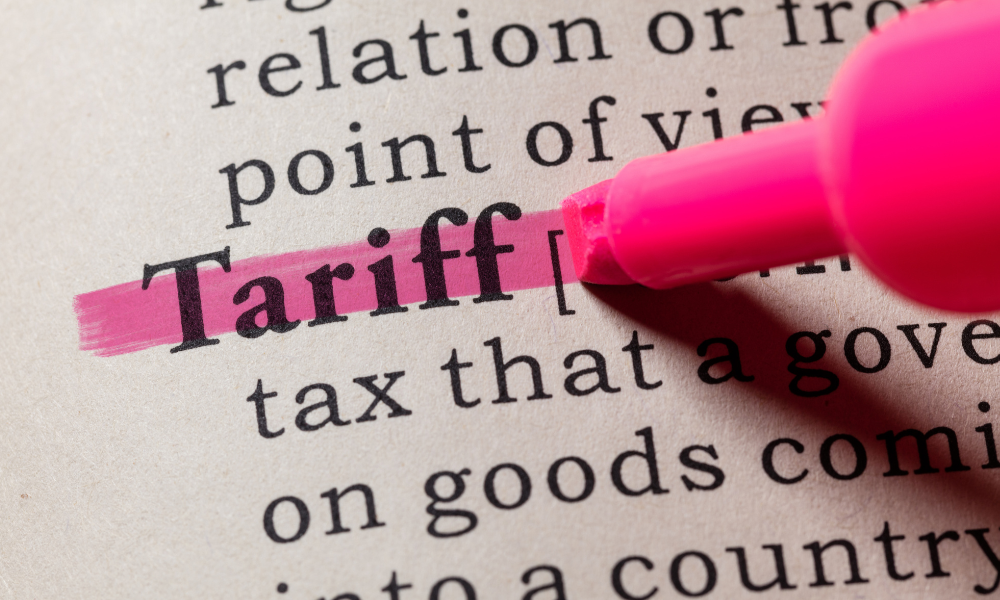

by Joe Deaux and Martin Ritchie
President Donald Trump said the US would begin levying a 50% tariff on copper imports from Aug. 1, confirming a move that will hurt American producers of everything from automobiles to appliances.
The higher-than-expected levy was signaled by Trump in comments to reporters on Tuesday, but the president took to Truth Social late Wednesday to confirm the start date — and blamed previous administrations for the decline of America’s copper clout.
“This 50% TARIFF will reverse the Biden Administration’s thoughtless behavior, and stupidity,” Trump said. “America will, once again, build a DOMINANT Copper Industry.”
The planned copper tariff opens up yet another front in Trump’s push to remake global trade and rebuild US industries. But the latest remarks still leave out critical details sought by metals traders — from how the tariff will be initially enforced to which products will be covered and whether any suppliers will be granted exemptions.
Big price moves this week have lifted US futures to a premium of about 28% over the London Metal Exchange, which sets global prices. That suggests traders are not convinced the full 50% tariff will be imposed universally. Still, some are now scrambling to get cargoes into the US ahead of the Aug. 1 deadline, including by shifting deliveries to Hawaii and Puerto Rico to cut shipment times.
“Once the logistics pathways run out of time, we would expect arbitrage buying to slow, and pressure LME pricing,” said Lachlan Shaw, co-head of mining research at UBS Group AG. “What this implies for the Comex-to-LME spread will depend on final tariff levels, as well as product coverage, and the extent to which US demand for copper is impacted by tariff-inclusive pricing.”
Copper on Comex in New York — which spiked to a record on Tuesday, before dropping back on Wednesday — rose 2.6% to $5.63 a pound at 1:27 p.m. in Shanghai. The LME price was up 0.5% after a five-day run of declines.
The president has already raised fees on steel and aluminum imports, and signaled more sectoral levies are in the works. That’s in addition to country-by-country tariffs that the White House is finalizing with dozens of its biggest trade partners, also set to take effect on Aug. 1.
Trump said copper was the second most-used metal by the Department of Defense, and his post listed products in which it’s needed, including ammunition. The tariff decision came after a “robust” national-security review, he said. The so-called Section 232 report is not yet publicly available.
At present, the US is highly reliant on imports, with flows coming from Chile, Canada and Mexico. Analysts and industry executives have warned it will take many years for the US to build significant domestic capacity.
Trump’s tariff move won support from Ivanhoe Mines Ltd. founder Robert Friedland, according to the Financial Times, which cited an interview. Domestic production was “fundamental to America’s national security,” he told the newspaper. “Just in case we have a war, we have to have enough raw material to deal with it.”
Copyright Bloomberg News

Mounting regulatory pressures and proposed taxes are putting a strain on higher education institutions, forcing renewed focus on liquidity management and the secondary market for private equity.

Poll of 1,500 retirement plan investors finds 45% interested in private equity and private debt, with more than three-quarters saying they'd ramp up contributions as a result.

Most firms place a limit on advisors’ sales of alternative investments to clients in the neighborhood of 10% a customer’s net worth.

Those jumping ship include women advisors and breakaways.

Firms in New York and Arizona are the latest additions to the mega-RIA.
Orion's Tom Wilson on delivering coordinated, high-touch service in a world where returns alone no longer set you apart.
Barely a decade old, registered index-linked annuities have quickly surged in popularity, thanks to their unique blend of protection and growth potential—an appealing option for investors looking to chart a steadier course through today's choppy market waters, says Myles Lambert, Brighthouse Financial.
